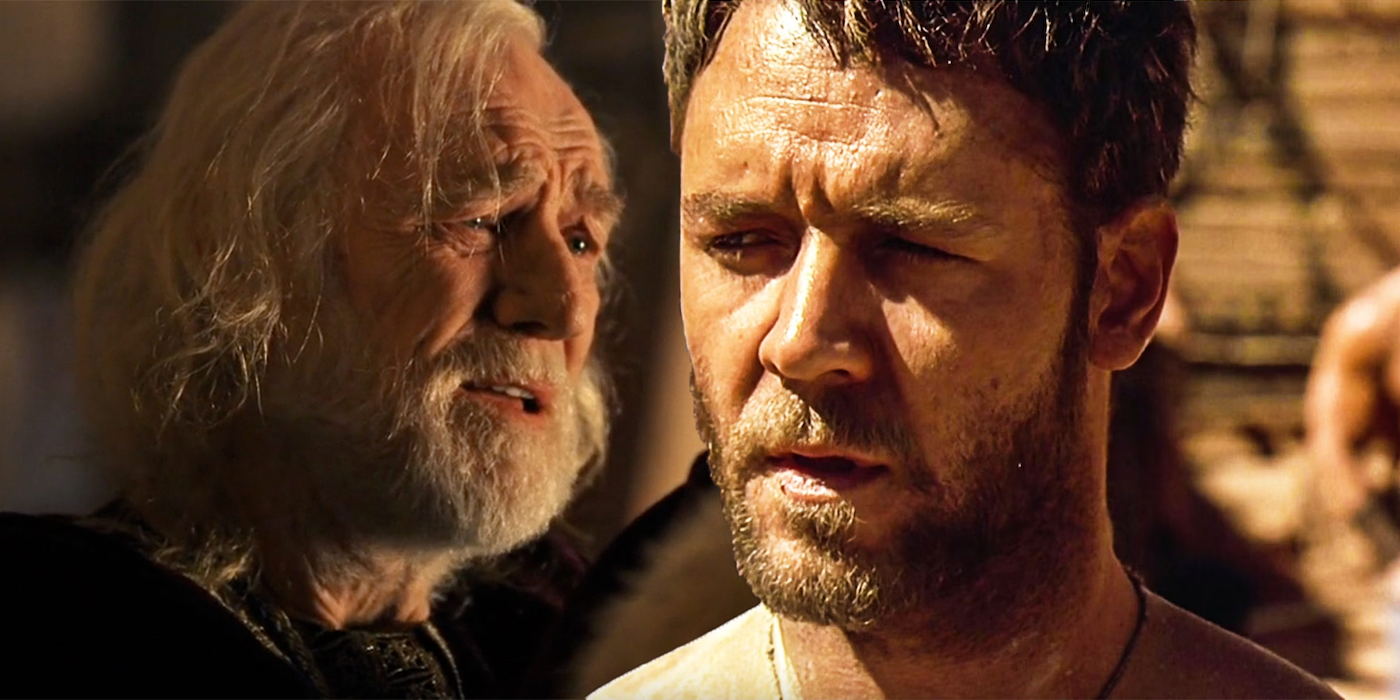The classic film, Gladiator, took several liberties with Roman history, but there are also some inaccuracies regarding the beloved emperor, Marcus Aurelius. Marcus Aurelius is known in the film for being the father of his murderer, the detestable Emperor Commodus, portrayed by Joaquin Phoenix. Aurelius is played by Richard Harris, known for his role as Dumbledore in the first two Harry Potter films. In reality, the well-regarded Roman emperor was the last of what was considered a golden age of Roman rule.
At the turn of the century, Gladiator was released to critical acclaim. The film followed a fictional general and gladiator, Maximus Decimus Meridius (Russell Crowe). Maximus sets out on the classic revenge story, rising through gladiatorial ranks to eventually rid Rome of the evil emperor Commodus. The Ridley Scott-directed film was meant to depict ancient Roman times accurately, but varying factors, including audience perception of similar past films, led to significant changes.
The Gladiator movie's story depicted the old emperor Marcus Aurelius as a wise man seeking to return the government to its days as the Roman Republic. This depiction is partly accurate. Marcus Aurelius was known historically as one of the "Five Good Emperors," a term denoting a line of benevolent rulers recognized for their reigns during times of relative peace and stability. Despite the historical claims of stability, Marcus's rule saw severe military conflict which, under his reign, were largely successful conquests. Despite the film's depiction, there is no evidence that the famed emperor wanted to return Rome to a republic form of government, calling into question some of the other historical inaccuracies in the film, including his death.
How Accurate Was Gladiator's Marcus Aurelius Compared To Real Life?
Along with Gladiator's Maximus not being a real person, another considerable inaccuracy of the film is the fact that Commodus never actually murdered his father, Marcus. While Commodus is historically considered a tyrant, the film's plot point of him needing to overthrow his father to obtain the throne is false. In fact, the two ruled together as co-emperors for the last three years of Marcus's life.
The beginning of Gladiator also shows Marcus Aurelius and his army defeating the barbarians in a triumphant victory. This could not have happened, as the emperor died of sickness before the end of the war, and Commodus later signed a peace treaty between Rome and the Germanic tribes they were fighting. This fact is definitely less exciting than a triumphant victory that establishes the film's main character. Ridley Scott's film also included a scene in which it was stated that Marcus Aurelius banned the gladiator games in Rome. The emperor did ban games but in Antioch, not Rome. The ban in Antioch was done to punish them for supporting his attempted usurper, Avidius Cassius.
Many historically-based films take liberties to better serve the audience. The portrayal of Marcus Aurelius in Gladiator follows a classic trope of the beloved ruler dying tragically only for the evil offspring to take over. In both the film and real life, the emperor was considered wise and benevolent; Richard Harris was the perfect casting for this role late in his acting career. Perhaps his film death at the hands of his jealous son would have made the actual history a bit more interesting, considering the real figure is said to have died from a plague sweeping Europe at the time.


